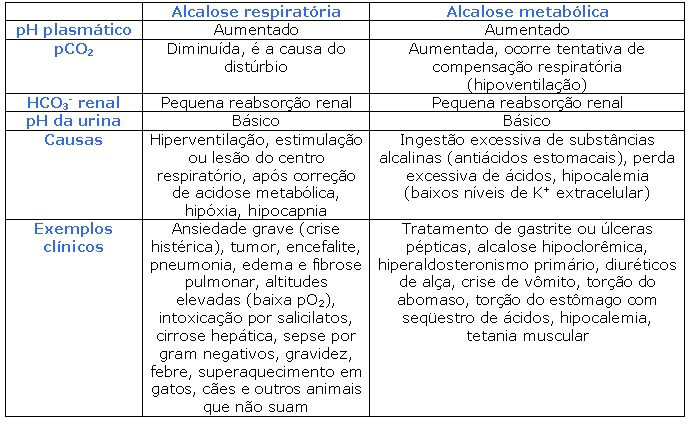Contents
Alcalose
Alkalosis designates an excessive alkalinity of the blood, that is to say a pH that is too basic. A distinction is made between metabolic alkalosis and respiratory alkalosis. These two conditions induce irritability, muscle cramps or spasms. Treatment focuses on the causes of alkalosis.
What is alkalosis?
Definition
PH is a measurement that defines whether a liquid is very acidic (0-1) or very basic (14-15). The blood is normally weakly basic: its pH varies between 7,3 and 7,5. When this PH increases, we speak of excessive alkalinity.
When this excessive alkalinity is due to an excess of bicarbonates or a loss of acids from the blood, it is called metabolic alkalosis. When it results from a low level of carbon dioxide in the blood (due to rapid or deep breathing), it is called respiratory alkalosis.
Causes
Metabolic alkalosis
Metabolic alkalosis results from either excessive acid loss or excessive base gain. The causes can be:
- loss of gastric acidity due to repeated vomiting or to a gastric tube during an operation
- base gain following excessive consumption of very basic products such as baking soda
Finally, alkalosis can be the result of an inability of the kidneys to maintain the balance between acidity and basicity in the body. This abnormal functioning of the kidneys may be due to:
- the use of diuretics
- a loss of potassium linked to overactive adrenal gland
Respiratory alkalosis
Respiratory alkalosis sets in when breathing too deep or too fast causes the level of carbon dioxide in the blood to be too low. The causes of this hyperventilation are:
- anxiety attacks and panic attacks (in most cases)
- an aspirin overdose
- fever or infection
- too low oxygen levels in the blood
- a strong pain
Diagnostic
The diagnosis is made on the basis of a blood test or urinalysis.
Risk factors
- People prone to panic attacks and anxiety attacks
- Consumption of diuretics
- Too much baking soda
- Repeated vomiting
Symptoms of alkalosis
Alkalosis can be manifested by:
- irritability
- muscle cramps
- a tingling sensation in the extremities
Tingling is commonly reported in respiratory alkalosis when hyperventilation is due to anxiety.
If the alkalosis is severe, attacks of tetany can occur.
Sometimes alkalosis does not cause any symptoms.
Treatments for alkalosis
Treatment for alkalosis is treatment of the cause, sometimes combined with medical help.
With the metabolic alkalosis, once the causes of alkalosis have stabilized (vomiting, etc.), the doctor can prescribe sodium and potassium to restore the acid-base balance.
For cases ofrespiratory alcoholism, the caregiver must first reassure the patient and ensure that he has a sufficient dose of oxygen. The treatment consists of:
- lower fever in case of infection
- an analgesic in case of severe pain
- conscious breathing and comfort in the event of a panic attack
If the panic attacks are recurrent, the patient can make an appointment with a psychologist. Cognitive behavioral therapies have shown great results in reducing anxiety and phobias.
Prevent alkalosis
The right behaviors to prevent alkalosis are:
- management of anxiety
- treatment of a fever when it appears
- medical monitoring in case of consumption of diuretics, aspirin and bicarbonate
Note: the consumption of medication should always be consulted by a doctor.










